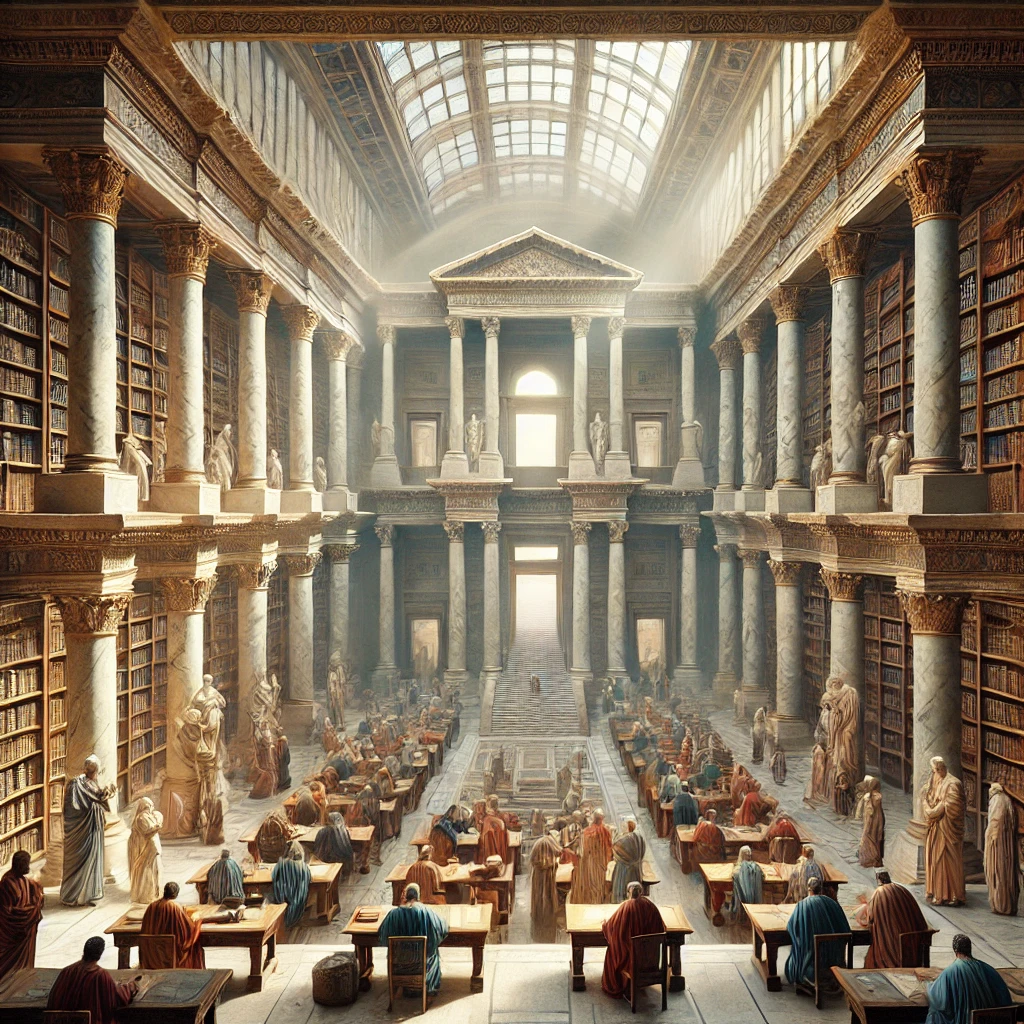The Library of Alexandria was one of the greatest wonders of the ancient world, a beacon of knowledge and learning that stood as a testament to human curiosity and intellectual ambition. Founded in the 3rd century BC in the Egyptian city of Alexandria, it was said to house hundreds of thousands of scrolls containing the collective wisdom of the known world. However, the library met a mysterious and tragic end, leaving behind an enduring mystery: What priceless knowledge was lost when it was destroyed?
The Founding of the Library
The Library of Alexandria was established during the reign of Pharaoh Ptolemy I or his son, Ptolemy II, as part of a grand vision to make Alexandria the intellectual capital of the world. Inspired by the Greek philosopher Aristotle’s vast collection of works, the Ptolemaic rulers sought to gather all human knowledge in one place.
Scholars, scribes, and thinkers from across the Mediterranean were invited to contribute to the library’s growing collection. It is believed that ships arriving at Alexandria’s port were required to surrender any books they carried, which were then copied by scribes. The originals were sometimes returned, but in many cases, the library kept the original and gave the ships a copy.
The Knowledge Within
Though no definitive catalog of the library’s collection has survived, it is believed to have contained works on philosophy, astronomy, mathematics, medicine, and literature. The scholars who worked there made significant advancements in science and thought. Among them was Eratosthenes, who calculated the Earth’s circumference with remarkable accuracy, and Hipparchus, who laid the foundations for trigonometry.
The library also held knowledge from Egyptian, Indian, Persian, and Mesopotamian cultures, making it one of the first truly international centers of learning. Some believe that lost works of great thinkers such as Aristotle, Archimedes, and even early treatises on medicine and engineering were once housed within its walls.
The Mysterious Destruction
The destruction of the Library of Alexandria is one of history’s greatest tragedies. However, the exact cause of its downfall remains a subject of debate. Some accounts suggest that Julius Caesar unintentionally set part of the library ablaze during his siege of Alexandria in 48 BC. Others blame later conflicts, such as the attack on Alexandria by Emperor Aurelian in the 3rd century AD or the decree of Arab rulers in the 7th century AD who sought to purge pagan knowledge.
Some historians believe the library’s decline was not the result of a single catastrophic event but rather a gradual process. Over time, political instability, neglect, and changing cultural priorities may have led to its eventual demise.
What Was Lost?
Perhaps the greatest tragedy of the Library of Alexandria is not just its destruction but the priceless knowledge that vanished with it. Could the library have contained lost scientific discoveries that might have advanced human civilization centuries earlier? Did it hold ancient maps, medical texts, or philosophical insights that could have reshaped history?
Some theorists even speculate that the lost works of the library might have included texts on forgotten technologies or early records of human history now lost to time. Without concrete evidence, we may never know the full extent of what was lost.
The Legacy of the Library
Despite its destruction, the spirit of the Library of Alexandria lives on. Modern institutions, such as the Bibliotheca Alexandrina, have been built in its honor, symbolizing humanity’s enduring quest for knowledge. Additionally, the concept of centralizing knowledge, seen in today’s universities, museums, and digital libraries, was largely inspired by the library’s mission.
Even in its absence, the legend of the Library of Alexandria serves as a powerful reminder of the fragility of knowledge and the importance of preserving human intellectual achievements for future generations.
Lessons from the Past
The Library of Alexandria remains one of history’s most fascinating enigmas. While we may never fully recover the knowledge it once held, its legacy continues to inspire scholars, historians, and dreamers alike. It serves as a symbol of the heights humanity can reach when it values learning—and the depths to which it can fall when knowledge is lost. In an age where information is more accessible than ever, the story of the Library of Alexandria reminds us to treasure, protect, and share knowledge, lest history repeat itself.

